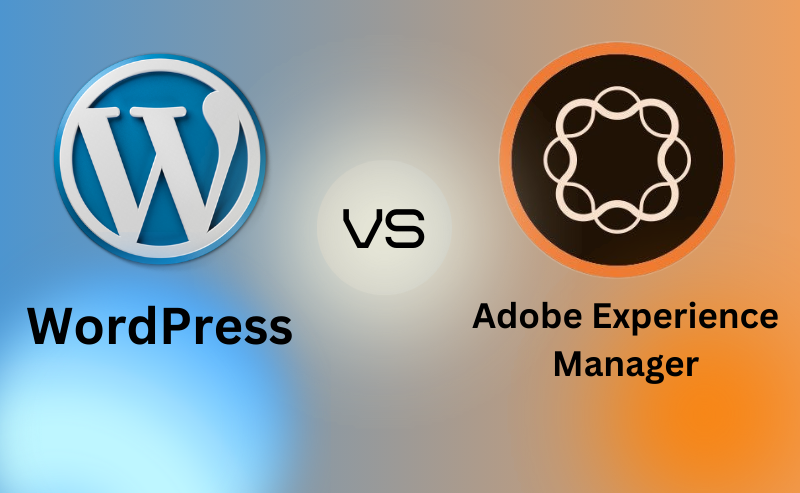Many businesses overlook the importance of web hosting for SEO, but in today’s highly competitive market, it is one of the most critical components.
Search engine optimization (SEO) is an essential factor in achieving online success, yet choosing the right web hosting service to support SEO efforts is underappreciated.
This article explores the complicated relationship between web hosting and SEO, highlighting the key factors that significantly impact search engine rankings.
Table of Contents
What Is Web Hosting?
Web hosting is a fundamental Internet service that allows individuals and organizations to make their websites accessible online. In essence, web hosting serves as a foundation for building and operating websites.
There are a variety of hosting options available for website owners to satisfy their varied needs. Among these options are shared hosting, virtual private servers, dedicated servers, and cloud hosting. Each option varies in terms of server resources allocated, performance, scalability, and level of control provided.
Web hosting includes various critical features and functionalities. These include storage space allocation for website files, bandwidth allocation to handle website traffic, email hosting services, database management systems, FTP (File Transfer Protocol) access for file management, and domain name registration and management.
To protect websites and data from cyber threats, reliable web hosting providers employ robust security measures, such as firewalls, intrusion detection systems, SSL certificates, and regular backups.
Different Types of Web Hosting
There are various types of web hosting available, each catering to different needs and requirements. Let us explore the different web hosting types:
Shared Hosting:
Shared hosting is an affordable option for beginners and small websites. A shared hosting service allows multiple websites to share server resources, including CPU, RAM, and disk space, in order to save costs.
This may be a cost-effective alternative, however the performance may suffer if other websites on the same server experience high traffic.
VPS Hosting:
Hosting on a Virtual Private Server (VPS) is a more flexible option. Dedicated resources are ensured for each website by splitting a physical server into multiple virtual servers.
In comparison with shared hosting, VPS hosting offers greater control, customization options, and better performance. For growing websites requiring more resources and enhanced security, it is an appropriate solution.
Dedicated Hosting:
Dedicated hosting offers the highest level of security and performance. Dedicated hosting ensures that all the resources of a server are exclusively available to a single website or organization.
Businesses with specific security and customization needs may benefit from this type of hosting, which is ideal for large-scale websites, high-traffic applications, and businesses with special security requirements.
Cloud Hosting:
Cloud hosting uses a network of interconnected servers to host websites. With it, resources can be assigned and scaled based on demand, which allows for scalability and flexibility.
Due to the fact that cloud hosting is not dependent on a single physical server, it offers excellent uptime and reliability. Websites that experiences fluctuating traffic or requires high availability should use it.
Managed WordPress Hosting:
Managed WordPress hosting is designed specifically for WordPress websites. Enhanced security measures, automatic updates, optimized server configurations, and specialized support are all part of this solution.
It simplifies website management for WordPress users, allowing them to focus on creating content and growing their websites.
In order to ensure that a hosting provider is able to meet your specific needs and provides a reliable service, we recommend doing an in-depth research and evaluation.
How Does Web Hosting Benefit Businesses?
Hosting is an essential component of the modern digital landscape, serving as a foundation for establishing and maintaining an online presence. There are countless benefits that justify its importance for individuals, organizations, and businesses alike.
Firstly, web hosting enables websites to be published and accessed on the Internet. This crucial role is fulfilled by web hosting providers, who store website files on their servers and make them readily available to visitors at all times.
Providers of web hosting ensure that websites are always up and running for users around the clock. Having uninterrupted availability is crucial for businesses, since it allows potential customers to access their websites, explore their products and services, and complete transactions, ultimately contributing to revenue generation and customer retention.
Infrastructure used by hosting providers is robust enough to accommodate varying flows of visitors. As a result of this scalability, websites are capable of handling surges in traffic, maintaining optimal performance, and providing seamless experiences to users even at peak times.
Website files and user data are safeguarded by web hosting providers using comprehensive security measures. Hosting providers are also committed to updating software and patches regularly, performing security audits, and monitoring server activities to ensure a safe online environment for both website owners and visitors.
In order to increase website loading speed and overall performance, hosting providers optimize server configurations, employ caching techniques, and utilize content delivery networks (CDNs). Additionally, search engines prioritize fast-loading websites in their rankings, making reliable web hosting an essential part of SEO strategies.
What Is The Impact of Web Hosting on Search Engine Rankings?
Your website’s success is directly influenced by the choice of a reliable and proficient web hosting provider. When selecting the right hosting partner, it becomes crucial to adopt a strategic approach due to the variety of options available on the market.
Making an informed decision tailored to your specific needs requires an understanding of the key factors to consider and evaluating them objectively.
The purpose of this comprehensive guide is to educate you on the most important factors you need to consider when choosing a web hosting provider.
These analytical steps will give you an insight into how to evaluate hosting providers and find the one that aligns perfectly with your needs.
Website Speed and Performance:
Search engines prioritize delivering an optimal user experience, and website speed plays a pivotal role in achieving this objective.
Website loading times and overall performance are directly affected by the web host and hosting package you choose.
The speed of websites is greatly affected by web hosting factors such as server response time, bandwidth, caching mechanisms, and content delivery networks (CDNs).
Server Uptime and Reliability:
The availability of your website is crucial for the search engines as well as your users, since downtime will negatively affect your rankings in search engines and cause frustration for your users.
Maintaining optimal website availability requires evaluating the reliability and uptime guarantees offered by web hosting providers.
It is possible for shared hosting environments to experience performance problems due to resource allocation among multiple websites, affecting both uptime and SEO.
Server Location and Geotargeting:
In order to display relevant search results in specific regions or countries, search engines consider the server location of a website.
Hosting providers with servers located in the target market can help a website rank well in that region as well as improve its visibility.
CDNs can enhance geotargeting capabilities by distributing website content across multiple servers worldwide, optimizing website performance and SEO outcomes.
Security and SSL Certificates:
To protect user data and ensure a safe browsing experience, search engines prioritize secure websites.
A reliable web host is able to protect websites with robust security measures, including firewalls, regular backups, and malware scanning.
By implementing SSL certificates, websites are protected and encrypted, resulting in improved search rankings and user confidence.
Scalability and Website Growth:
As businesses grow, their websites require scalability to handle increasing traffic and content updates without compromising performance.
Web hosting should align with anticipated growth trajectory, offering options to upgrade resources and accommodate future website demands.
IP Address:
An IP address is assigned to every website hosted on the internet, and search engines evaluate the reputation and uniqueness of the IP address when ranking websites.
When a website is hosted in a shared hosting environment, it shares the same IP address with several other websites, which could pose problems for SEO if neighboring websites practice spammy or unethical practices.
Choosing a dedicated IP address can help maintain a clean reputation and prevent any negative influence from other websites, thereby improving SEO performance.
Mobile-Friendly Hosting:
As mobile browsing continues to grow, search engines prioritize mobile-friendly websites in their indexing and ranking algorithms.
Providing responsive web design solutions will enable websites to adapt seamlessly to a variety of screen sizes and devices, improving user experience as well as SEO performance.
For SEO, website loading times on mobile devices are crucial, and choosing a web hosting provider that optimizes site loading times on mobile devices can improve search rankings and user satisfaction.
Technical Support:
To minimize any negative impact on SEO performance, web hosting providers should provide responsive and knowledgeable support in case of technical problems.
Maintaining optimal SEO performance requires regular website maintenance, including software updates and security patches, and a reputable web hosting provider should be able to provide these services.
Hosting Infrastructure:
A hosting provider’s server infrastructure, such as its hardware, network, and data centers, can have a significant impact on the performance of the website, its uptime, and its overall SEO rankings.
Cloud hosting offers scalability, reliability, and redundancy, which can positively impact SEO by ensuring high availability and fast website loading times.
Local SEO:
When targeting specific local markets, hosting websites on local servers can enhance local SEO signals and improve visibility in local search engine results.
Choosing a web hosting provider that supports country-specific domain extensions can further strengthen local SEO efforts.
Website Backup and Recovery:
Regular and reliable website backups provided by the hosting provider are crucial for decreasing the risk of data loss and ensuring website recovery in the event of an incident.
Website downtime and data loss can have severe consequences on search rankings and user trust, making robust backup and recovery capabilities an essential aspect of SEO-friendly hosting.
Reputation and Server IP Neighborhood:
Search engine rankings can be affected by the reputation of the IP address neighborhood, which includes websites hosted on the same server or shared hosting environment.
As search engines consider the overall quality and trustworthiness of the hosting environment, the reputation and reliability of the web hosting provider can affect SEO performance.
Optimal performance, visibility, and search engine rankings require a holistic approach. Businesses seeking to dominate the digital landscape and drive sustainable online success can benefit from the interaction between web hosting and search engine optimization.
The Importance of Quality Hosting for Clients – Why It Is Important to Educate Them?
Well-hosted websites deliver faster loading speeds, minimal downtime, and seamless user experiences.
Smooth browsing experiences enhance credibility, build trust, and encourage repeat traffic to a website.
Fast loading times and responsiveness are key factors that search engines consider when ranking websites.
Superior hosting helps businesses improve their rankings, increase visibility, and attract more organic traffic.
To keep websites secure from cyber threats, such as hacking, data breaches, and malware attacks, quality hosting providers use robust security measures.
Additionally, educating clients and stakeholders about the benefits of quality hosting will lead to cost-effectiveness. Even though some may prefer cheaper hosting alternatives, it’s crucial to emphasize the negative impacts of subpar hosting.
Hosting that is inadequate can lead to frequent downtime, slow loading speeds, and insufficient customer support, which will negatively impact business operations and the customer experience.
It is possible for businesses to encourage clients and stakeholders to invest in reliable hosting solutions by highlighting the long-term benefits of quality hosting, such as improved performance, scalability, and technical support.
How Crucial is Web Hosting for SEO Success?
Web Hosting for SEO is of utmost importance, as the choice of a reliable and high-performing web host is integral to SEO success. To rank well on search engines, such a provider is vital to guarantee optimal website performance, including fast loading speeds and consistent uptime.
Having a reliable web hosting infrastructure in place ensures that businesses’ websites are accessible, responsive, and fast to load, thereby enhancing their online visibility and attracting organic traffic.
As a result, businesses should invest in a reputable web hosting service to establish and maintain an online presence, maximize their SEO efforts, and ultimately accomplish their digital marketing goals.
Take a Look at Our Detailed Reviews of Various Web Hosting Providers:
DreamHost Review: An Elite Option for Web Hosting Solutions 2023
A2 Hosting Review: Trustworthy Web Hosting Services for 2023
Bluehost Review 2023: Reliable, Performance-Driven Web Hosting
Hostinger Review 2023: A Heartfelt and Informative Analysis of High-End Web Hosting Services
InMotion Review 2023: Uncovered – A Heartfelt Dive Into Top-Quality Web Hosting Services
Profound FastComet Review 2023: A Remarkable Web Hosting Service
WPX Review 2023: A Powerful Guide to Decoding Digital Success
WP Engine Review: Your Absolute 2023 Guide To Leading Web Hosting Services
GreenGeeks Review 2023: Superior Web Hosting Solution Explored
Kinsta Review 2023: An In-depth Evaluation of Performance, Features, and Hosting Solutions Value


